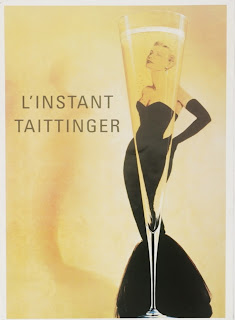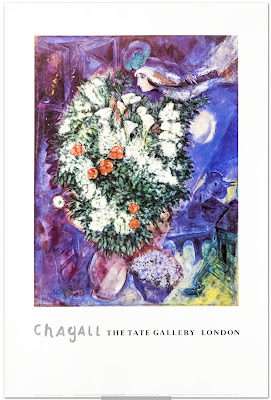A Failure Turned into a Sucess - Shel St Clair
When I was in second grade, my teacher sent me to the Principal's office because my classmates were paying me lunch money for portraits I drew of them. Although my teacher admired my artistic abilities and supported my passion, she worried about seven-year-old students going hungry.
As I stepped off the school bus at the school that morning, my eyes landed on my mother. She had just kissed my goodbye when I got on the bus, yet here she stood, stoically, arms crossed and lips pressed in a tight line. I sensed that I was in for another of those awkward meetings with the adults who couldn't quite figure me out. My pragmatic mother would try to tame my headstrong nature. At the same time, my father would fiercely defend my spirited passion for life. And amidst it all, a well-intentioned but overwhelmed bureaucrat would attempt to keep everything running smoothly. It was a familiar scene from childhood, and I braced myself for the inevitable clash of opinions and agendas.
To the Principal, there wasn't anything particularly wrong with my entrepreneurial venture of selling portraits at school. After all, the 4-H club and Girl Scouts also eagerly sold their goods on campus. However, my method involved directly targeting the students themselves. I was taking their lunch money for the day with every portrait sold. Ultimately, the actual offense was not obtaining parental consent for this unconventional business venture. As he spoke, his lips formed words that his eyes seemed to contradict, conveying a sense of conflict within him as he patiently explained why I couldn't continue my art dealing at school. It was almost comical how his words and expressions clashed, like a tug-of-war between his professional duty and personal beliefs.
When he finished his argument, my mind raced to counter each point. But I couldn't help feeling conflicted about it all and once again being subject to an adult world whose logic didn't seem logical. I only drew during recess or free time - it wasn't disrupting class time. But he had me on the fact that kids were going hungry. Was the value of art more than a missed meal? I even pointed out that some kids could benefit from missing lunch.
My mother's eyebrows shot up, my father chuckled under his breath, and the Principal's gaze turned icy. I could feel my heart sinking as I realized I had made the dreaded error. This was a familiar scenario from my childhood - I always seemed to do or say something that made perfect sense to me but left my mother upset, which resulted in punishment.
As she spoke, I could hear that we were done; not even my dad would have argued with that tone of voice. Articulating my first name and punctuating it with my middle name, she clarified that I would never do it again. Period.
As I saw my first business enterprise crumbling, I squared my jaw and bit down. I would not cry. After all, I was only seven; I would find another opportunity to make my mark on the world. A rebellious tear tried to force its way out to the corner of my eye, but I resisted and dominated it. I responded, "Yes, ma'am."
I strode through the bustling hallways with my head held high, pondering whether I embodied Charles Darnay's bravery or Joan of Arc's determination. Was it my solemn duty to sacrifice myself for my art, no matter how young? As I reflect on those turbulent childhood years, I marvel at how my mother managed to endure and guide me through them with endless patience and unwavering love.
After school, my brother and I walked to our parents' restaurant. As we passed through the dining room, where we usually did our homework at a table by the cash register, I noticed a chalkboard sign hanging on the wall. It featured my mother's elegant handwriting and read "Fine Portraits by Shel Belle." My father had lovingly nicknamed me Shel Belle, and it was an inside joke between us. This sign was new; where had it come from? It looked so professional and hung proudly on the wall for all the world to see.
The regular farmers who frequented our restaurant were sitting around a large table sipping coffee. They were my father's closest friends and often engaged me in deep discussions about life, religion, and farming. My mother disapproved of my intrusion into their conversations, claiming their taking me seriously would make me vain. So I stood staring at the sign, hoping they would notice without me pointing to it.
They did and asked what it was all about. In a burst of confidence, I declared that I was a portrait artist and even had samples of my work on hand. I proudly pulled out a recently completed drawing of Linda, the daughter of the local bank manager. The men seemed amazed at the resemblance. They passed the drawing to and fro, exclaiming at the likeness. Then I asked if I only drew children or knew how to draw old men.
Excited at the opportunity to showcase my talent and make some money, I agreed to draw each man for seventy-five cents. But as I pulled each face, I realized there was more to capturing someone's likeness than skill or technique. I could see the depth of their experiences and wisdom in their eyes, which was not in the kids at school. I realized this was art, a soul formed beautifully through striving and overcoming. I strived to capture that soul in my portraits.
This unexpected business venture lasted until sixth grade when we sold the restaurant in Plainview, TX, and moved to Oklahoma City. And it wasn't until high school that I discovered my clever father would offer customers a free coffee with their purchase of a portrait. But looking back, those afternoons spent sketching in our family restaurant taught me more about people and humanity than any formal education ever could. I learned the value of understanding my customers, the importance of empathy in art, and the power of a good marketing strategy.




Comments
Post a Comment